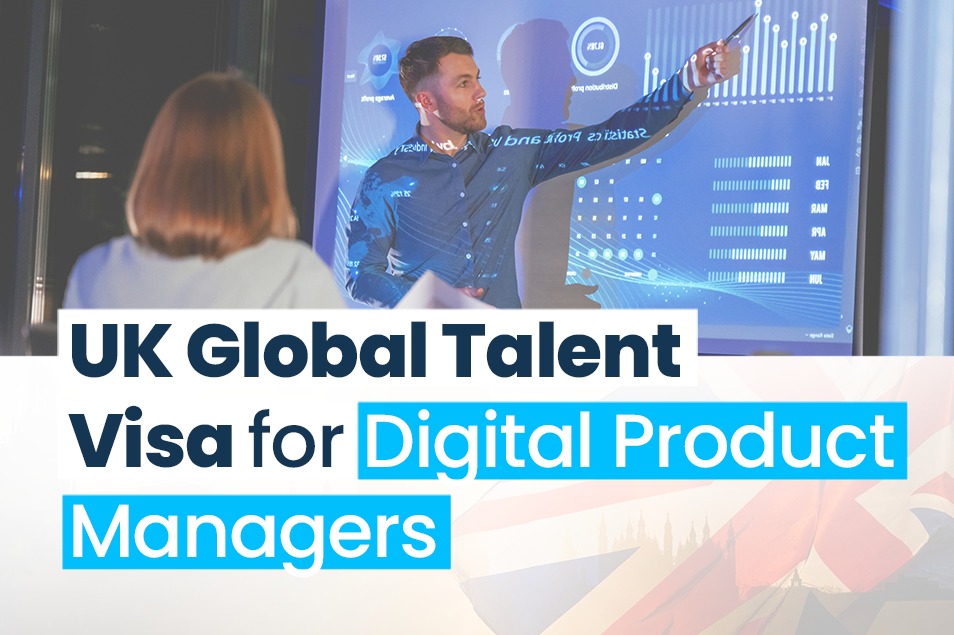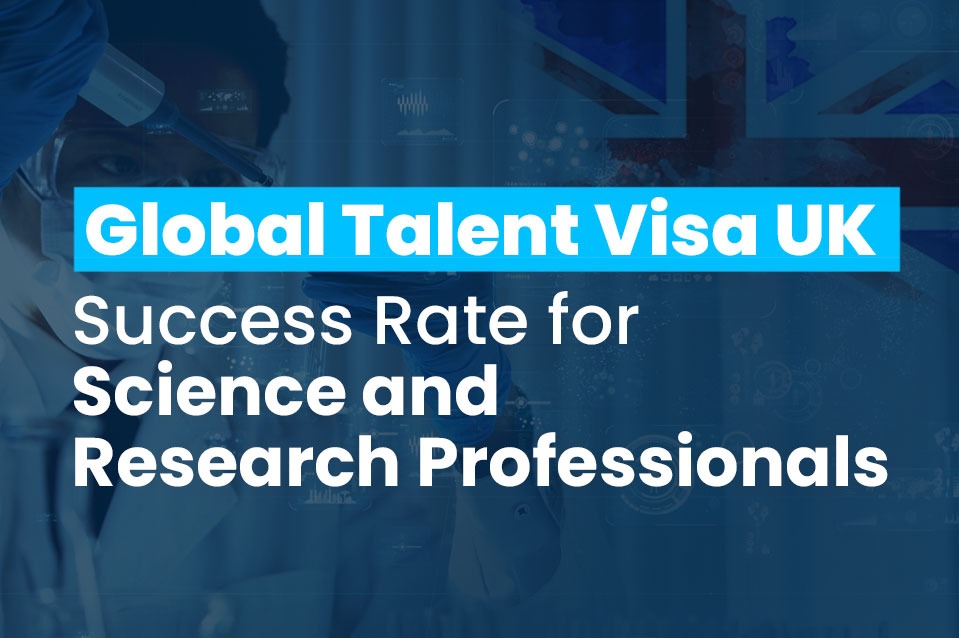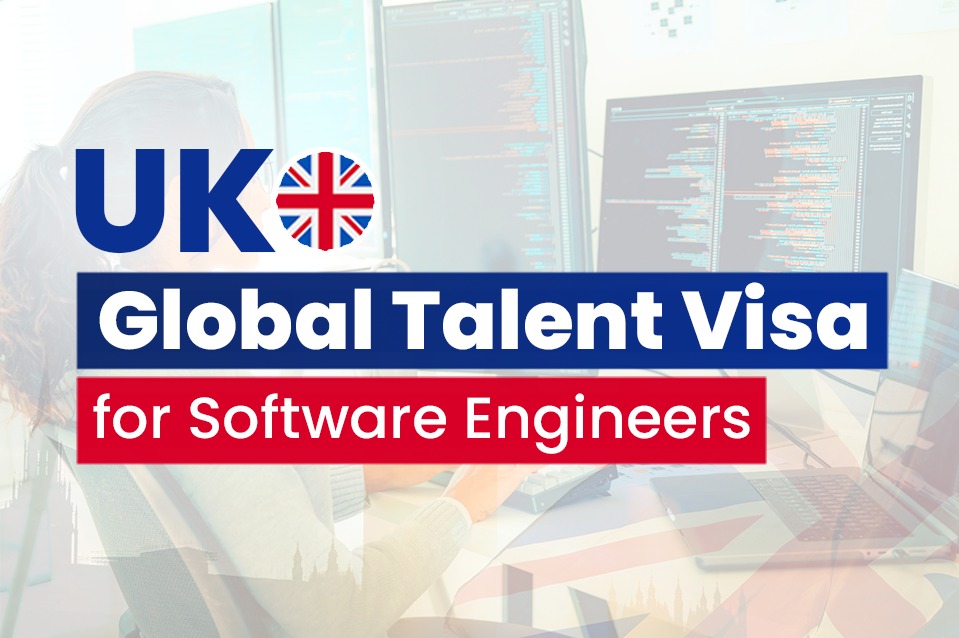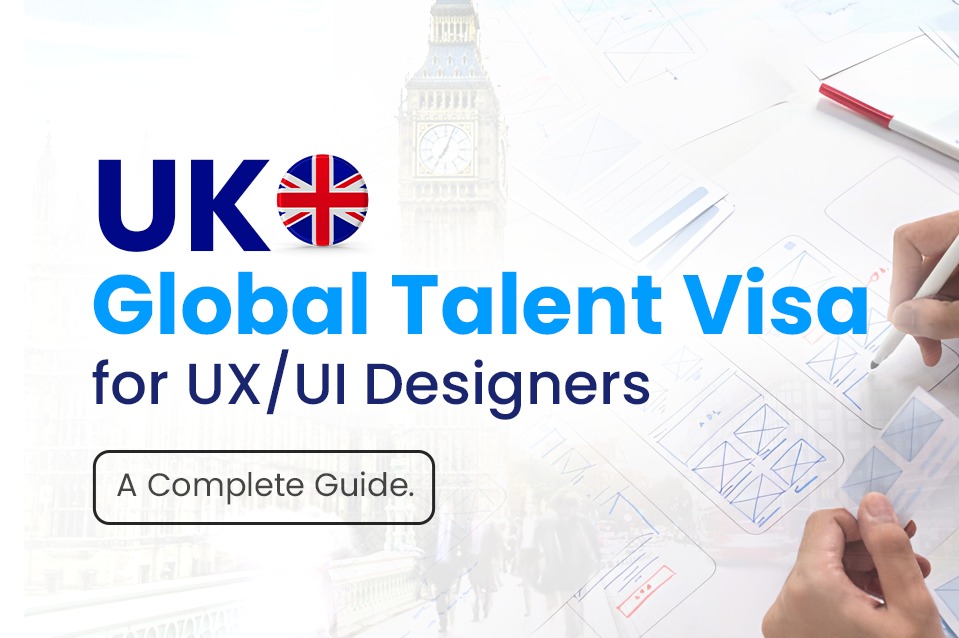
The UK’s Global Talent visa science and research route provides an exceptional pathway for researchers, academics, and scientists aiming to advance their careers internationally. This visa is meant to attract talented people from around the world. It recognises those who are already leaders in their field, as well as those who are showing clear potential to become leaders in the future.
The Global Talent visa is different from regular work visas. It gives you more freedom, flexibility, and recognition. It is designed for professionals whose work brings new ideas, discoveries, and global impact to the UK’s growing knowledge economy.
Many professionals often ask about the Global Talent Visa UK success rate. While the government doesn’t share exact numbers, knowing the eligibility routes, endorsement rules, and required evidence can greatly increase your chances of approval.
Why the UK Attracts Science and Research Professionals?
The UK is known worldwide for its science, education, and innovation. Top universities like Oxford, Cambridge, Imperial College London, and the University of Edinburgh make the country a global leader in research and development
Key factors that attract researchers and scientists include:
- Global reputation for excellence in academia and science.
- The government's commitment to welcoming skilled researchers via the Global Talent visa.
- Strong funding ecosystem for research and innovation.
- World-class facilities and labs, encouraging pioneering work.
- Opportunities for international collaboration across both academia and industry.
With such strong foundations, demand for the visa is growing, and more applicants want to understand the Global Talent Visa UK success rate for science and research categories.
What is the Global Talent Visa Science and Research?
This pathway is open to two categories of applicants:
- Exceptional Talent: established leaders who are already internationally recognised.
- Exceptional Promise: emerging leaders showing strong potential for future impact.
Unlike employer-sponsored visas, the Global Talent visa allows academics and researchers to:
- Work independently.
- Collaborate across institutions.
- Launch their own projects or ventures.
To qualify, applicants must first secure endorsement from one of four recognised UK endorsing bodies:
- The Royal Society (natural and medical sciences)
- The Royal Academy of Engineering
- The British Academy (humanities and social sciences)
Only after receiving endorsement can applicants apply for the visa itself. This two-stage process is crucial to the Global Talent Visa UK success rate, since success depends on meeting both endorsement and immigration requirements.
Peer Review Criteria for Researchers
If applying through the peer review route, assessors carefully evaluate:
- Career history and the international impact of contributions.
- Strength of recommendation letters and supporting evidence.
- Contribution to UK research excellence and wider impact on society and the economy.
Evidence Required for Peer Review
Applicants must provide:
- A detailed CV including publications and career milestones.
- A recommendation letter from a leading UK-based expert covering achievements, the applicant’s relationship, and potential contributions to UK research.
- For Exceptional Talent applicants: an additional letter from a senior UK research leader confirming international reputation and leadership.
Exceptional Promise vs Exceptional Talent
- Exceptional Promise (early-career professionals): Evidence includes early-career prizes, research funding, impactful publications, and strong potential relative to career stage.
- Exceptional Talent (established leaders): Requires proof of major achievements such as prestigious awards, significant grant funding, and international recognition as a leader in the field.
Key Factors Affecting the Success Rate
While the overall Global Talent Visa UK success rate is positive, outcomes depend on the quality of applications. Endorsing bodies evaluate each submission on strict, evidence-based criteria.
Factors that most strongly influence approval include:
- Quality of evidence: Peer-reviewed publications, patents, awards, and grants.
- Recommendation letters: Must clearly demonstrate leadership, originality, and international recognition.
- Endorsing body focus: Each body has specific priorities (e.g., UKRI values grant-linked applicants, the Royal Society prioritises groundbreaking scientific impact).
- Career stage: Applications are assessed differently for emerging and established leaders.
- Alignment with UK priorities: Research in fields like AI, life sciences, green technology, and engineering innovation strengthens applications.
Advantages of the Global Talent Visa Endorsement
The UK Global Talent Visa Science and Research offers unique benefits:
- Freedom to work: no employer sponsorship required.
- Pathway to settlement: ILR in 3 years (exceptional talent) or 5 years (exceptional promise).
- Collaboration opportunities: work with academic and industry leaders worldwide.
- Family support: dependants can join, work, and study in the UK.
- Strong approval rates: the Global Talent Visa UK success rate is particularly encouraging for science and research professionals.
How can Themis Technologies Increase Your Global Talent Visa UK Success Rate?
At Themis Technologies, we specialise in helping researchers, scientists, and academics build stronger, more competitive applications. While the UK government does not publish an official success rate, our expertise ensures that every aspect of your submission is tailored to maximise your chances.
Here’s how we support you:
- Expert CV review: Highlighting academic achievements, leadership roles, collaborations, and publications.
- Tailored endorsement route selection: Matching your profile to the right endorsing body (Royal Society, UKRI, British Academy, or Royal Academy of Engineering).
- High-impact references: Advising on strong letters of recommendation from recognised leaders.
- Strategic research vision: Framing your work to align with UK priorities and demonstrate global impact.
- Full advisory support: Ensuring all documents, endorsements, and evidence meet Home Office and endorsing body standards.
By partnering with Themis Technologies, you gain expert, end-to-end guidance that gives you a clear edge in this competitive visa category.
The Future of the Global Talent Visa: Science and Research
With continued UK investment in STEM, AI, life sciences, and green innovation, the Global Talent visa remains central to attracting top international talent.
Given these priorities, the Global Talent Visa UK success rate for science and research is expected to remain strong. At the same time, interest from global professionals will continue to grow, making careful preparation and expert guidance more important than ever.
FAQs About Global Talent Visa UK Success Rate
Q1. Who endorses applicants under the science and research route?
Endorsements are handled by the British Academy, the Royal Society, the Royal Academy of Engineering, and UK Research and Innovation (UKRI). Each organisation covers specific disciplines.
Q2. What are the eligibility routes for researchers?
Researchers can qualify through an eligible academic or research job offer, an individual fellowship, a UKRI-approved research grant, a prestigious prize, or the peer review route.
Q3. How long does the endorsement process take?
Fast-track routes (job offer, fellowship, or UKRI grant) usually take around 2 weeks. Peer review applications typically take about 5 weeks.
Q4. Can publications help in the endorsement process?
Yes. A strong publication record helps show international reputation, career impact, and meaningful contributions, key aspects assessed during peer review.
Q5. What is the benefit of the Global Talent Visa Science and Research?
This visa offers freedom to work without sponsorship, rich collaboration opportunities, a path to settlement, and the chance to contribute to UK research excellence.
Conclusion
The Global Talent Visa Science and Research route gives excellent opportunities to academics, scientists, and innovators. It offers flexibility, a path to settlement, and strong approval rates, making it one of the best visas for building a long-term career in the UK.
However, success relies on good preparation, strong evidence, and the right strategy. With expert guidance and by matching your application to the UK’s research goals, you can greatly increase your chances of approval.
For talented professionals ready to make a global impact, the Global Talent Visa UK success rate shows the UK’s dedication to recognising excellence in science and research.







